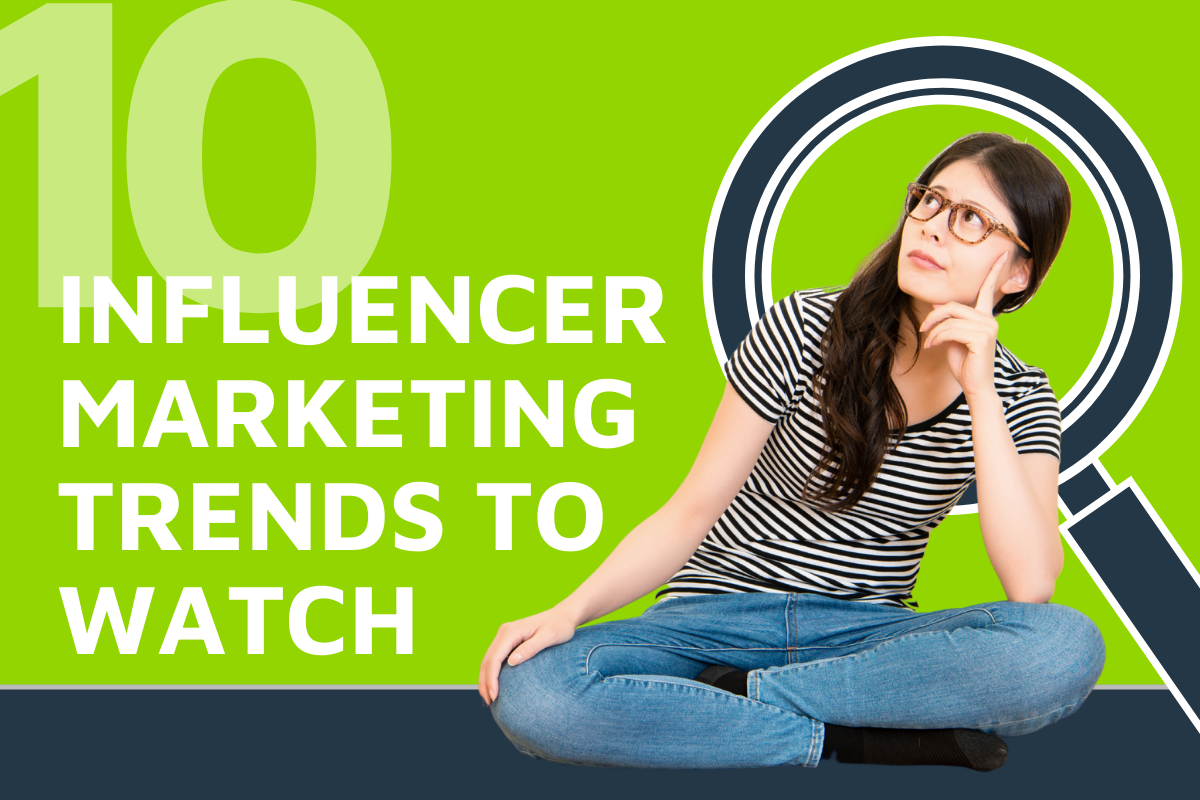After a totally unpredictable and culturally profound year in 2020, businesses are analyzing the ways in which they reach consumers with a renewed focus on influencer marketing trends.
1. Micro and nano influencers will gobble up more of the marketing pie
Influencers will continue to develop expertise in their niches, making them even more sought after by businesses in those industries. From a reach perspective, micro and nano influencers generate high engagement rates due to their loyal, super-engaged audiences. Their followers trust their curated and specialized content. At a lower price point, these influencers are attractive to both businesses that can afford to partner with multiple and diverse “content creators” as well as smaller businesses with more limited budgets.
2. Influencers will value quality (content) over quantity (follower count)
Two words: creative worth. As influencers become more specialized, there will likely be a shift in how they are valued. Because so many influencers are true artists – you writers, performers, photographers, videographers, and chefs know who you are! – it’s not surprising that they’d want to be known for what they actually create. They place more value on their own creative worth and high-quality content than being considered social media celebrities.
3. Authenticity will remain literally key
Influencers carefully curate content that they create for businesses to ensure that the products and services click with their audiences. The secret sauce is authenticity. It is a genuine sense of excitement about the subject that makes sponsored content authentic. No fancy production values, backdrops, or hair and makeup crew needed – just knowledge and enthusiasm about the subject itself. Standard sponsored posts that stand the test of time allow an influencer to promote a business in their own uniquely informative and entertaining, but above all honest, way.
4. Short-form video will continue to soar
People of all ages love watching videos. They love escaping reality through light-hearted content. The pandemic highlighted a new reliance on apps for social entertainment. Short-form video is the style of brief, instantly-engaging video content. It has become ubiquitous across platforms. First, “disappearing content” options like Instagram Stories became popular. Then TikTok took off. Influencers were along for the ride – gaining followers on the platform and partnering with businesses to create sponsored posts and ads. More recently, Instagram expanded its short-form video functionality with the introduction of Reels.
Short-form videos are simple to produce and offer real-time entertainment and on-trend, time-sensitive messaging – all while appealing to our notoriously shortened attention spans. Authentic, relatable influencer marketing content is expected to expand beyond social media channels (pre-roll, digital ads, etc.) as short-form video continues to trend.
5. Influencers will demo new platforms
It may be easy to create content, but it may be hard to answer the question – where will content resonate best? In addition to the existing social media platforms, new and experimental forms of media will emerge. As platforms court influencers, they even employ technology such as AI and CGI techniques to advance them. And IGTV is poised for growth with the addition of live ads.
6. Social commerce will bring new sponsorship opportunities
The pandemic forced businesses to find even more creative ways of connecting with shoppers. Necessity is the mother of invention, and social commerce was born. Shoppable videos and shoppable posts have created a seamless user experience. Influencer marketers should look to partner with businesses ready to build shoppable content into their plans for integration between platforms and e-commerce solutions.
7. Paid amplification will play a supporting role
True, paid ads are typically not used together with influencer marketing campaigns. However, paid amplification (message promotion) is an influencer marketing trend becoming increasingly useful to reach large, niche audiences. Thanks to extremely granular ad targeting provided by social media platforms, businesses can ensure that their valuable influencer content gets seen despite tricky social media algorithms. This improves overall campaign impact
8. Diversity and inclusion will drive partnerships
2020 brought social justice issues to the forefront. Both representation and taking action on stated values matter to consumers. With an eye on diversity and inclusion, influencer campaigns will want to “accentuate the positive” as the old saying goes – promote audience connections by reflecting the best qualities among the vast array of human differences. Influencers themselves should anticipate that businesses need to represent diverse consumer segments.
9. Businesses will seek ongoing partnerships over one-time projects
Sales can take time. Even influencers with highly-engaged audiences may not be able to contribute immediately from a single post. Influencers should consider marketing campaigns that include several sponsored posts over a set period of time. In addition, joining an influencer marketing network can provide legitimacy.
10. Performance-based deals and metrics will increase
As businesses and influencers both seek the stability offered by long-term partnerships, it’s likely that performance-based influencer marketing will grow. Collaboration and planning will intensify. This means that influencers will need to convert expectations into a specific number of sales or clicks. Influencers should understand two important things: the guarantee they would be agreeing to in a contract; and the metrics that track their ability to deliver to the desired audience.
With a platform like Reach, you can easily manage and scale your influencer campaigns to get the most out of your budget and time. Sign up today or set up a demo to learn more!



Leave A Comment